In homes, offices, and factories, there are lights, cables, tools, and machines plugged into power. Behind the scenes, safety checks help make sure these things won’t spark, overheat, or stop working when needed most. That’s where the ETL listed label comes in.
You might have seen this mark printed on cords, light bulbs, or even coffee machines. But what does it mean? Why does it matter? And what's the difference between ETL and UL-listed cables and devices? This article breaks it down in a simple way, so it’s easy to understand even without any tech background.
What Does ETL Listed Mean?
The ETL listed label shows that a product meets certain safety standards. ETL stands for Electrical Testing Laboratories. A company called Intertek runs the ETL program. Their job is to test products and see if they are safe to use.
If a product passes all the checks, it gets an ETL approval. That means it met the rules and is okay to sell in stores. If something has this label, it means the item has been checked and found safe for everyday use.
What's the Difference Between ETL and UL-Listed Devices?
UL and ETL both check products to see if they meet safety rules. Some companies use UL while others use ETL. Both test items use national standards. So what sets them apart? Before diving into that, let’s go over how these two work differently by breaking them down.
Different Testing Labs
UL (Underwriters Laboratories) runs its own tests in-house. ETL tests are done by Intertek, another big testing group. Both are trusted by governments and companies worldwide.
Time and Speed
Many manufacturers feel the ETL approval process moves faster than UL. Some like the faster review time, especially when launching new products.
Cost for Testing
For some, ETL-listed products may cost less to test. This depends on the product type, but cost and budget are a real part of the decision.
Acceptance in Markets
Both marks, UL and ETL, are accepted across North America. Electricians, inspectors, and retailers trust them both equally.
Label Recognition
More people know the UL mark. But that doesn’t make ETL any less official. Both marks mean the product met tough safety rules.
Why Is It Important for a Product to Be ETL Listed?
The ETL listed label is more than just a sticker. It means a product went through checks to make sure it works safely. This matters in places where people use devices every day, like:
- Homes
- Hospitals
- Schools
- Offices
It gives peace of mind and also helps companies meet legal rules. Selling untested equipment can get a company into big trouble. So this label protects people and businesses.
For manufacturers, this mark can make all the difference in product acceptance. Retailers are more likely to stock ETL-approved products because they meet compliance standards. It also simplifies things for contractors and engineers. They don’t have to second-guess if an item meets electrical codes.
The label proves it does. Having certified items cuts delays in fast-moving construction or electronics projects. Products without the right approval can hold up inspections, add paperwork, or even require last-minute replacements.
By ensuring the item has passed the proper ETL rating, everyone from buyer to installer knows they're working with something that’s already been checked for safety and compliance.
How ETL Certification Provides Peace of Mind
Buying something with a label shows that someone tested it. But what else comes with ETL listed labels? Here’s how the approval builds trust, even if you’re not the one doing the testing.
Regular Inspections after Approval
The testing doesn’t stop after the first check. Factories that make ETL-listed products go through surprise checks to make sure they’re still building safe items.
Clear Guidelines for Fixes
If something fails a test, Intertek gives steps to fix it. This isn’t just a pass/fail test. They work with the maker to solve problems.
Backed by Standards
ETL testing follows strict rules made by groups like ANSI and NFPA. These aren’t random checks. They follow national safety laws and codes.
Helps with Building Codes
Local inspectors check wires, lights, and panels before a building opens. If products are ETL approved, inspectors move faster. The mark gives confidence.
Accepted by Insurance
Insurance companies often ask about ETL approval. If something goes wrong and the product was untested, claims could be denied. But ETL listed labels keep things on track.
Conclusion
The ETL listed mark isn't just a symbol. It means someone checked the product to make sure it won’t cause harm or break too soon. Whether you're buying a lamp or installing wires in a factory, seeing that label means someone already did part of the safety work for you.
Explore TS Cables for dependable ETL-listed products that meet industry standards and deliver consistent performance.
FAQs
What is ETL approved?
It means the product passed safety testing done by Intertek and meets national standards.
Is ETL the same as UL?
Both tests for safety use similar rules. UL is older, but both marks are trusted equally.
Are ETL-listed products accepted everywhere?
Yes. North America, especially the US and Canada, accepts both UL and ETL marks.
Does ETL listed mean better quality?
It means the product is safe. Quality may vary, but safety rules were followed.
What’s the cost difference between UL and ETL testing?
ETL tests can sometimes be more affordable, depending on the product and volume.






